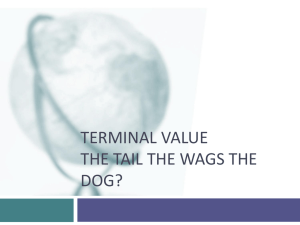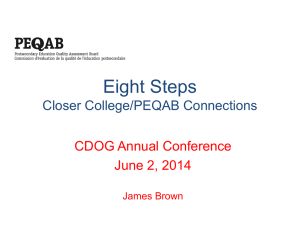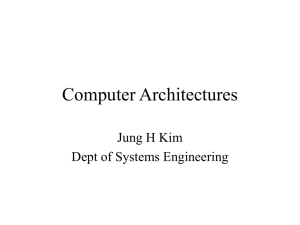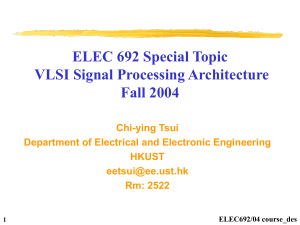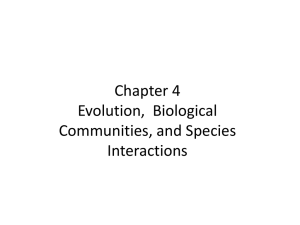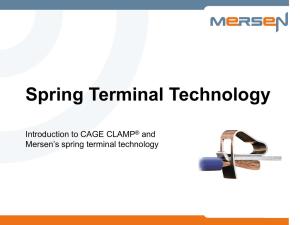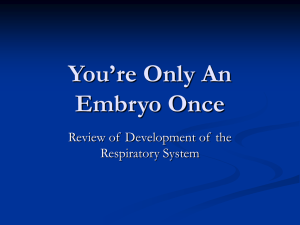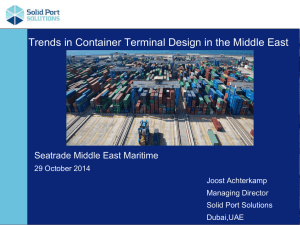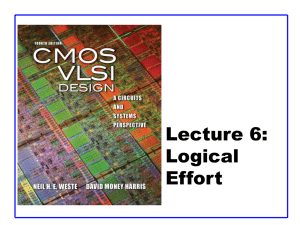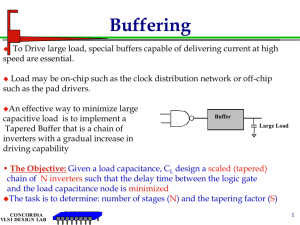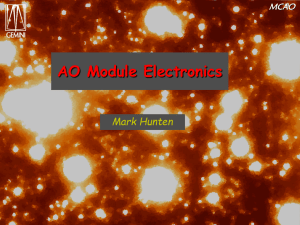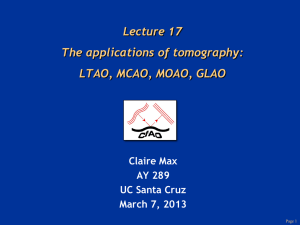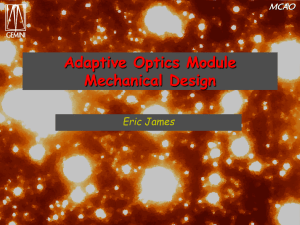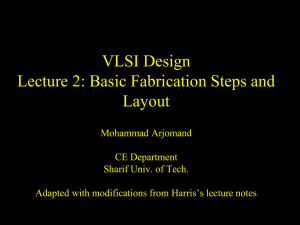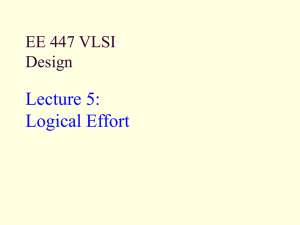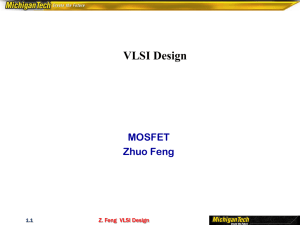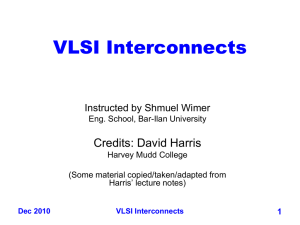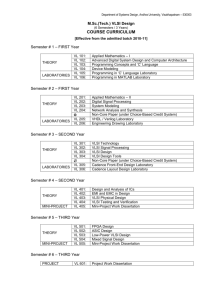VLSI DESIGN & COMPARABILITY GRAPHS
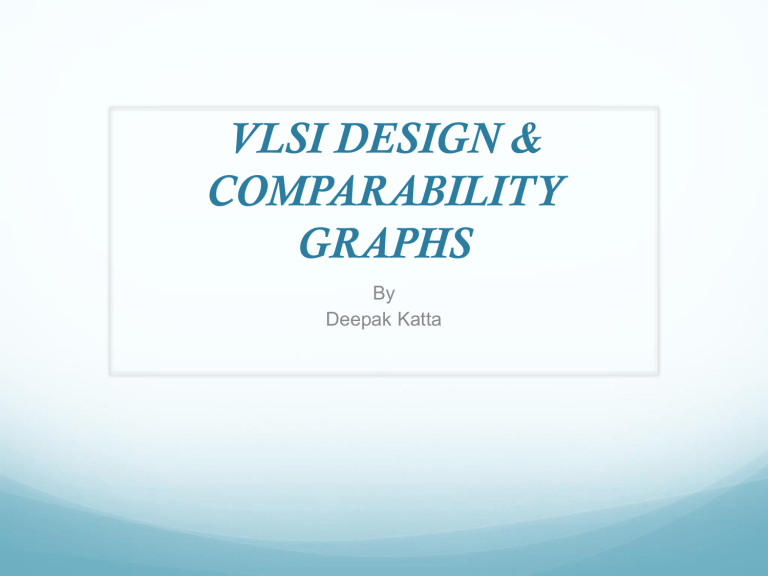
VLSI DESIGN &
COMPARABILITY
GRAPHS
By
Deepak Katta
Outline
Real World Problem
VLSI Channel Description
Types and Constraints of VLSI Channels
Which Graph Problem?
Two
– Terminal Net
MCC1 Algorithm
Multi – Terminal Net
References
Real World Problem
Channel Routing Problem in a VLSI
Physical design is to compute feasible minimum area routing solution.
VLSI Channel Description
•
Has two open ends (Left & Right side of channel).
•
Other two sides (Upper & Lower) have two row of terminals.
•
A set of terminals that need to be connected together is called
NET.
•
The terminals of the same net are assigned with equal numbers.
•
Unconnected terminals are assigned number 0.
Types of VLSI Channels
We consider two types of Channels:
Two Terminal Net Channel.
Types of VLSI Channels
Multi Terminal Net Channel
Constraints in VLSI Channel
Our Motto is to assign more non overlapping intervals to same track.
We consider both Horizontal and Vertical Constraints.
Horizontal Constraints determine weather the intervals can be assigned to same track or not.
Vertical Constraints determine the order in which intervals must be assigned from top to bottom.
For Representing Horizontal Constraints we construct HCG
(Horizontal Constraint Graph).
For Representing Vertical Constraints we construct VCG
(Vertical Constraint Graph).
Which Graph Problem?
This problem can be solved by Calculating Minimum
Clique Cover.
Minimum Clique Cover is NP Complete [Garey and
Johnson 1979]
Can be solved in Polynomial Time if the graph is perfect [Golumbic, 1980; Ramierz Alfonsin and Reed
2001]
Two – Terminal Net
Constructing HCG for Two – Terminal Net:
Two – Terminal Net
HCG gives overlapping intervals; but our aim is to assign non overlapping intervals; so find the complement of HCG
Complement of HCG is HNCG(Horizontal Non
Constraint Graph)
Two – Terminal Net
HNCG is Comparability Graph.
So, we apply MCC1 Algorithm on HNCG to compute a minimum clique cover of HNCG.
Clique corresponds to a set of non – overlapping intervals.
Main Property of Comparability Graph is Transitively
Orientable.
MCC1 Algorithm
First: We assign a set of ‘n’ natural numbers to the vertices of a graph based on starting column positions of all ‘n’ nets in the channel.
MCC1 Algorithm
Second: Then we orient an edge {V i
, V j
} of this graph
V i is having number ‘p’ and V j is having number ‘q’ if (p < q) V i
V j else V j
V i
MCC1 Algorithm
Third: Start computing cliques.
In the first clique, we first include the vertex whose corresponding net is starting first in channel
Clique1: {V
5,
V
3,
V
8
}
Clique2: {V
2
, V
1
}
Clique3: {V
6
, V
7
}
Clique4: {V
4
}
Solution
Assign the cliques to the tracks.
Multi – Terminal Net
Multi – Terminal Net
HCG Construction:
Multi – Terminal Net
VCG Construction
Multi Terminal Net
HNCG Construction
Hybrid Graph
Constructing Hybrid Graph
Consider Source Vertices from Top to Bottom and assign them to tracks
And graph is reduced to Comparability Graph and Apply MCC1
Solution
References
Graphs – The Tool to Visualize the problems in VLSI
Channel Routing [ISSN 0975-2773] Achira Pal, Tarak N
Mandal and Rajat K Pal.
http://en.wikipedia.org/wiki/Comparability_graph
Golumbic, 1980; Ramierz Alfonsin and Reed 2001
Thank You
Questions???
